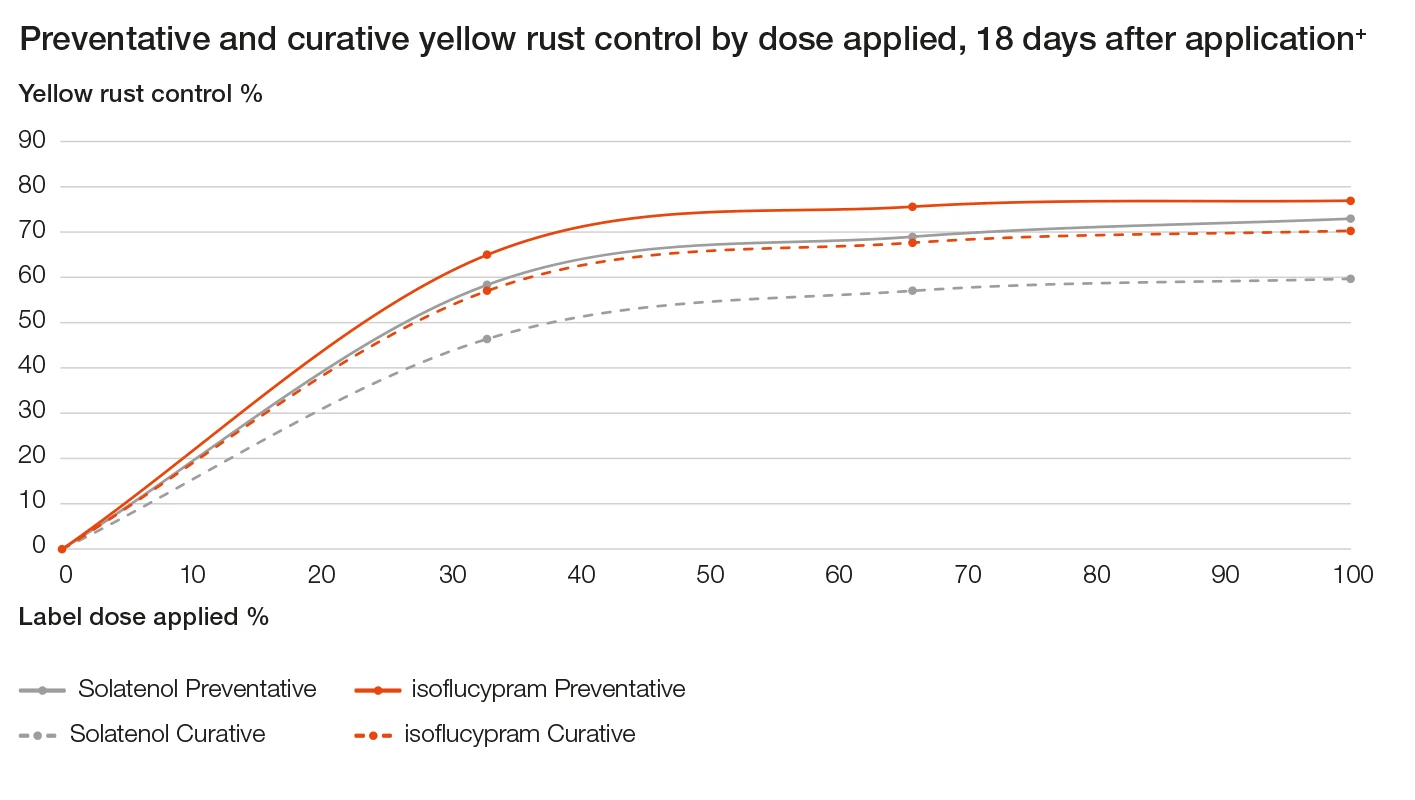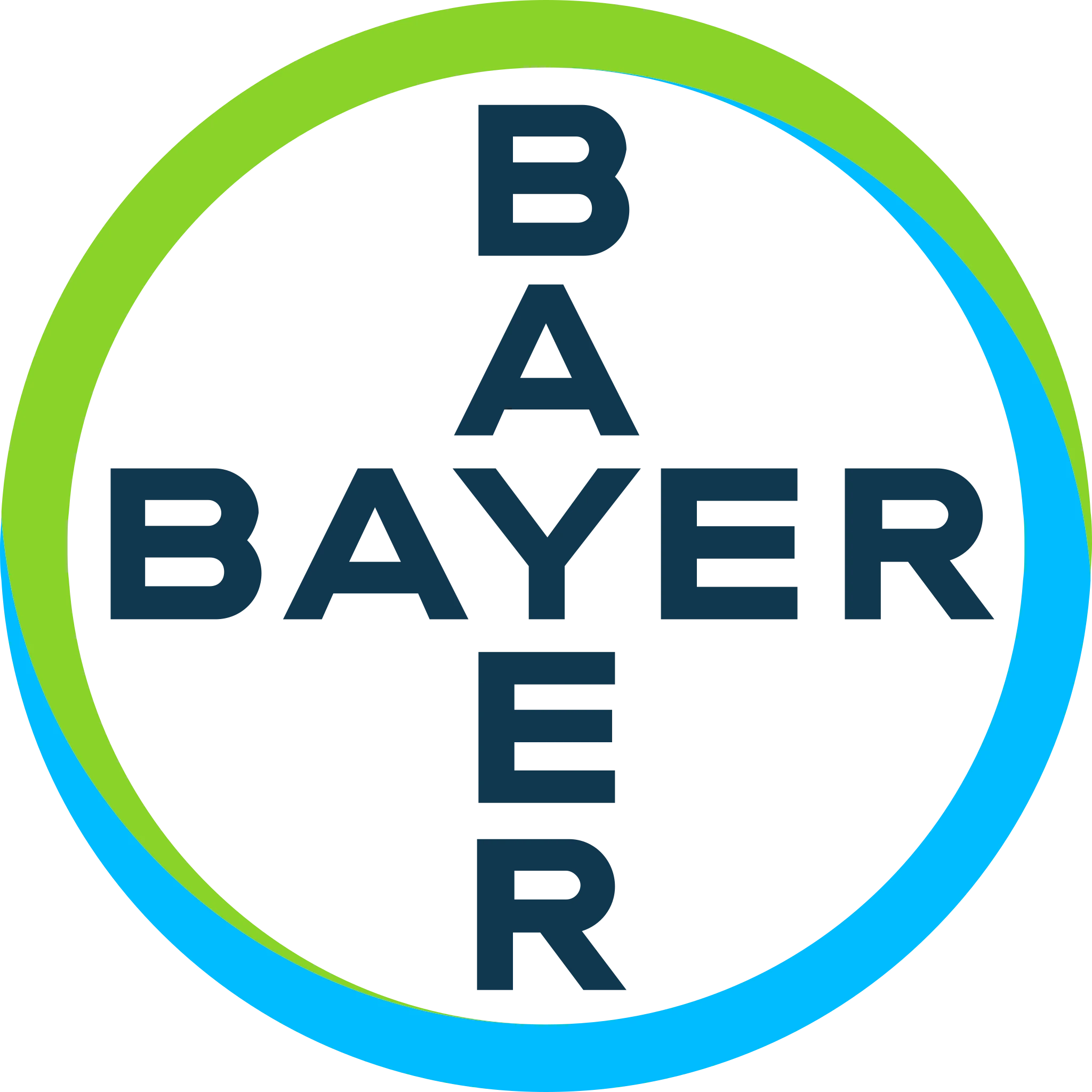Published on 1st July 2023
Disease Management
iblon to deliver unrivalled broad spectrum control

• Unrivalled broad-spectrum disease control
• Yield-boosting benefits beyond disease control
• Outstanding Leafshield formulation
The active substance, isoflucypram, offers unrivalled control of major cereal diseases, including yellow rust, brown rust and Septoria, as well as useful activity against eyespot, and yield boosting benefits beyond disease control.
The anticipated launch of iblon will bring a welcome addition to the fungicide armoury, with both the Association of Independent Crop Consultants (AICC) and ADAS commenting that it will prolong the efficacy of other fungicides, while giving growers greater flexibility in the timing of applications.
Delivering unrivalled disease control
Underpinning iblon’s broad-spectrum of activity is the cyclopropyl ring on the nitrogen molecule at the centre of isoflucypram. This feature is unique to iblon, and testing reveals that the N-cyclopropyl ring significantly enhances the molecule’s fungicidal broad-spectrum activity levels when compared to molecules without the ring. In extensive trials at sites spanning Great Britain, and across multiple seasons, iblon delivered more protectant and curative activity against yellow rust than products containing Solatenol® (benzovindiflupyr), such as Elatus® Plus (see chart).

Against Septoria, iblon was far better than Solatenol® and on a par with both Revystar® XE (fluxapyroxad + mefentrifluconazole) and Univoq® (fenpicoxamid + prothioconazole). Importantly, it has demonstrated strong persistent protection and curative activity as a result of being active against these pathogens at all stages of their lifecycle. This will bring timing flexibility and gives growers and agronomists the confidence that it will deliver good protection between fungicide applications.
Extensive trials have shown iblon offers growers a flexible product across the fungicide programme. In trials where it has been tested at T1, iblon has proven that its unrivalled broad spectrum disease control delivers beyond current standards. Based on 10 trials performed in 2022, the mean yield gain from iblon + Proline 275 (prothioconazole) at T1 was 2.5 t/ha over the untreated. This was above that delivered by either Univoq® , Revystar® XE , or Elatus® Era (benzovindiflupyr + prothioconazole).
Bayer market development agronomist, Greg Hanna, says the launch of iblon will bridge the gap between rust and Septoria control, while also offsetting the future withdrawal of established active substances. Mr Hanna says, “We have a strong fungicide arsenal, but many products have an Achilles heel. The current standards for Septoria are invariably weak against yellow rust unless used at high rates, which is uneconomic.
“Equally, the better yellow rust fungicide actives fall short when it comes to Septoria. iblon addresses this imbalance. The potential loss of tebuconazole, were it to happen, will also mean the end of a popular and reliable active substance for use against yellow rust. Isoflucypram combines outstanding rust control while also being highly effective against Septoria. This means strong protection against wheat’s two most damaging diseases,” he adds.
Outstanding Leafshield formulation
Central to iblon’s impressive performance is the science in its formulation. The Leafshield system is a truly industryleading formulation system that allows the active to work to its full potential by optimising its bio-availability, spreading, leaf adhesion and rainfastness.
Bayer trials in Germany, comparing iblon’s Leafshield formulation system alongside a Syngenta formulation, have demonstrated that it delivers almost four-times the leaf coverage. Applied using a Flat Fan 110 (2.5 bar @ 110 L/ha), Bayer’s formulation system achieved a mean coverage of 92% of the leaf area, compared with Syngenta’s 26%. Similarly, when applied using a Guardian Air 03 nozzle (2.5 bar @ 110 L/ha), the Leafshield system achieved an average 77% leaf coverage, compared with Syngenta’s 20%. As with all Bayer products, iblon has undergone a thorough testing process at the world class Bayer Application Technology Centre (ATC), to ensure the highest level of product performance in the field, giving growers confidence in its performance in their farm equipment. Additionally, it has been applied across 20,000 ha in New Zealand, and through 40 UK sprayers in Forward Farmer trials in Spring 2023, all without issue.
Yield-boosting benefits beyond disease control
The importance of maintaining a healthy canopy in supporting yield performance has been widely demonstrated. With iblon, there is a clear yield gain even in the absence of disease. In AICC trials performed in 2020, where disease incidence in untreated crops was assessed as being less than 5%, iblon-treated crops yielded an average 0.5 t/ha over the untreated.
Expert opinions:
ICC committee member Patrick Stephenson says the launch of iblon brings efficacy and stewardship benefits to the industry. “iblon brings another frontline piece of chemistry to the fungicide armoury that we can utilise in disease control strategies. Its approval will help us maintain efficacy and provide additional protection to all our chemistry options.” ADAS researcher Jonathan Blake notes that the timing flexibility will further underline its appeal. “Isoflucypram is a good Septoria product with strength on rusts too. In ADAS trials, it has shown itself to be highly effective against both yellow and brown rust, and offers some curative activity should an earlier fungicide application timing be compromised.”
Acknowledgements: Ascra, Vimoy and Iblon are trademarks of Bayer. AscraXpro contains bixafen, fluopyram and prothioconazole; Vimoy contains isoflucypram. Elatus and Solatenol are both a trademark of Syngenta. Elatus Era contains benzovindiflupyr and prothioconazole. Revystar is a trademark of BASF. Revystar XE contains fluxapyroxad and mefentrifluconazole. Univoq is a trademark of Corteva Agriscience. Univoq contains fenpicoxamid and prothioconazole.



